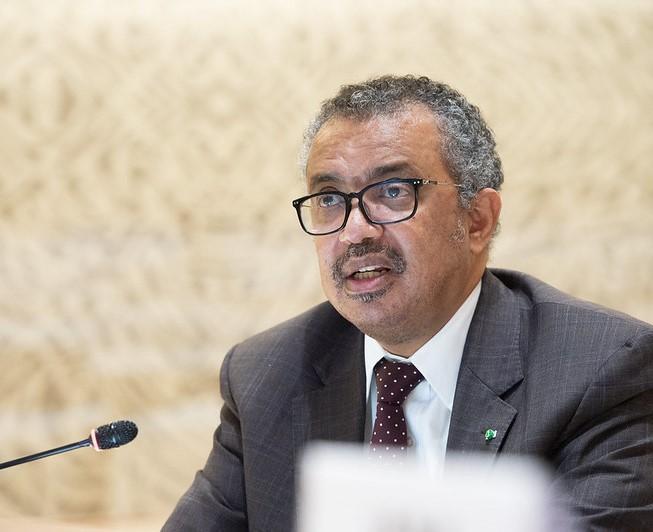After just over a year, the World Health Organization (WHO) today announced an end to the public health emergency of international concern (PHEIC) for mpox outbreaks in Africa, which has resulted in new patterns of transmission, emergence of new clades, and cases exported—with very limited onward spread—outside of Africa.
At a media briefing, WHO Director-General Tedros Adhanom Ghebreyesus, PhD, said the WHO's mpox emergency committee met yesterday to discuss the latest developments and recommended an end to the PHEIC while updating its recommendations for countries in the region. "I have accepted that advice," he said.
The group, which has been meeting every 3 months, based its decision on sustained cases and deaths in the Democratic Republic of the Congo (DRC) and other hot spots, including Burundi, Sierra Leone, and Uganda. "We also have a better understanding of the drivers of transmission, the risk factors for severity, and the most affected countries have developed a sustained response capacity," Tedros said.
Lifting the emergency declaration doesn't mean the threat is over or that the response will stop and the possibility of new flare-ups remain, which he said will require adequate surveillance and response capacity. "Ongoing efforts are needed to protect the most vulnerable groups, particularly young children and people living with HIV."
Africa CDC extends continental health emergency
The Africa Centres for Disease Control and Prevention (Africa CDC), however, extended the public health emergency of continental security (PHECS) yesterday, following the September 2 meeting of its mpox emergency committee. The agency declared the emergency on August 13, 2024, which marked Africa CDC's first for a health event.
In a statement, Africa CDC said the downward trends aren't yet stable enough to justify lifting the emergency in the region. "The unanimous decision underscores both the fragility of recent gains and the need to sustain Africa's collective momentum until mpox is under durable control," the agency said. Members also warned that maintaining the PHECS is essential for preserving political will, mobilizing resources, and keeping countries on high alert.
The unanimous decision underscores both the fragility of recent gains and the need to sustain Africa's collective momentum until mpox is under durable control.
Though cases are down sharply from a peak in May, mpox surges have affected Ghana, Liberia, Kenya, Zambia, and Tanzania, with new introductions reported in Malawi, Ethiopia, Senegal, Togo, The Gambia, and Mozambique.
While acknowledging improvements in testing coverage and strong progress with vaccination, Africa CDC said major concerns include higher-than-average death rates in a handful of countries and reduced international support, including the US-based PEPFAR program for patients living with HIV, who are at greater risk for severe mpox illness and death.
Cases down in DRC but up in Kenya
At a weekly briefing yesterday, Yap Boum, PhD, MPH, deputy incident manager for Africa CDC's mpox response, said cases continue an encouraging decline in the DRC, but the country's health officials are seeing a shift in cases from the traditional hot spots to more central provinces. He noted that the situation in Sierra Leone continues to stabilize, with low but persistent transmission.
Outbreak responders in Ghana, which is battling clade 2b, have reported a significant drop in cases and a decline in test positivity, he said.
Kenya, battling clade 1b, is one of the areas of concern, with cases on the rise, of which 43% are in Mombasa, with illnesses also reported in Nairobi, the country's capital, Boum said. He noted that tracking patients' sexual contacts is challenging and that Kenya will soon launch an mpox vaccine campaign.





















